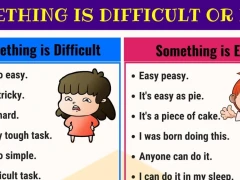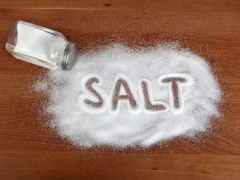exam [iɡˈzæm] n. 考试
【派】examination 考试
【扩】test 测试 quiz 小型考试
* * *
A: Do you have any plan after graduation?
B: All my family members encourage me to take the postgraduate entrance exam.
A:毕业后你有什么打算吗?
B:我的家人都鼓励我参加研究生入学考试。
* * *
pass [pɑːs] v. 及格,通过
mathematics [ˌmæθəˈmætiks] n. 数学
question [ˈkwestʃ(ə)n] n. 问题
【扩】interrogative 疑问的
【搭】ask a question 问问题
out of question 没问题
* * *
A: What if someone asks me a question but I can't understand?
B: That occurs to everyone in English Corner. You can ask that person to say it again.
A:如果有人问我问题,我没听懂,怎么办?
B:在英语角,每个人都会遇到这样的 情况,你可以请那个人再说一遍。
* * *
easy [ˈiːzi] adj. 容易的
enough [iˈnʌf] adv. 足够地
paper [ˈpeipə] n. 考卷
fail [feil] v. 未及格,失败
【派】failure 失败
【扩】pass the exam 考试及格
【搭】fail the exam 考试不及格
fail to do sth. 没能做某事
* * *
A: As for me, passing the exam is not an easy job.
B: But I failed the exam again yesterday.
A:至于我,考试及格不是一件轻而易举的事。
B:但昨天我又没考及格。
* * *
answer [ˈɑːnsə] v. 回答
mark [mɑːk] n. 分数
【派】remark 评论
【搭】get a high mark 得高分
mark time 原地踏步
* * *
A: Did you get a good record in English?
B: Yes, I obtained 95 marks in English.
A:你的英语成绩好吗?
B:是的,我英语得了95分。
* * *
rest [rest] n. 其他的东西
difficult [ˈdifikəlt] adj. 困难的
【派】difficulty 困难
* * *
A: Practicing Taiji must be very difficult, right?
B: The basics are not that difficult, but it's not easy to master.
A:打太极一定很难吧?
B:难倒不难,但要打得好可不容易。
* * *
hate [heit] v. 讨厌
【派】hateful 可恨的
【扩】dislike 讨厌
* * *
A: I hate to say this, but your boy is so mischievous.
B: I'm sorry to trouble you so much.
A:我真不愿提这事,但你的小孩确实太淘气了。
B:很抱歉给你带来了那么多麻烦。
* * *
low [ləu] adj. 低的
【派】lower 放低 lowly 地位低的
【扩】high 高的
【搭】feel low 情绪低落
* * *
A: I got a C in English.
B: That's a low grade.
A:我英语得了C。
B:这成绩太低了。
* * *
cheer [tʃiə] v. 振作,振奋
【派】cheers 干杯 cherry 高兴的
【扩】perk 振作
【搭】cheer up 振作
* * *
A: He looks blue.
B: Let's cheer him up.
A:他看上去很忧郁。
B:我们得让他振作起来。
* * *
guy [ɡai] n. 家伙,人
* * *
A: Who is the bridegroom?
B: Hill is that lucky guy.
A:谁是新郎?
B:希尔那个幸运的家伙。
* * *
top [tɔp] n. 上方,顶部
【派】topless 无顶的
【扩】peak 顶点
【搭】on the top of 在……顶部
* * *
A: It's not too much a problem for me to reach the top of the hill.
B: But it's a little difficult for me.
A:到达山顶对我来说并不太难。
B:但对我来说有点儿难。
Lesson 104 Too, very, enough太、非常、足够
clever [ˈklevə] adj. 聪明的
【扩】bright 聪明的 intelligent 聪明的
【反】fool 傻的
* * *
A: Everyone is so clever here.
B: Yeah, I feel I can't hold up my head here.
A:这儿每个人都那么聪明。
B:是啊,在这里我觉得抬不起头来。
* * *
stupid [ˈstjuːpid] adj. 笨的
* * *
A: I feel so stupid.
B: What happened? You look so depressed.
A:我觉得我自己很笨。
B:发生什么事了?你看起来很沮丧。
* * *
cheap [tʃiːp] adj. 便宜的
【派】cheaply 廉价地
【扩】inexpensive 便宜的
【反】dear 贵的
* * *
A: Can you make it cheaper?
B: That's almost cost price.
A:能便宜一点儿吗?
B:这几乎是成本价了。
* * *
expensive [ikˈspensiv] adj. 贵的
fresh [freʃ] adj. 新鲜的
* * *
A: Is there anything else we should pay attention to?
B: Please prepare a bunch of fresh roses for me.
A:还有别的需要我们注意的地方吗?
B:请为我准备一束新鲜的玫瑰。
* * *
stale [steil] adj. 不新鲜的,变味的
low [ləu] adj. 低的,矮的
* * *
A: Are there any low calorie foods?
B: Yes, we have some. Here they are.
A:有什么低热量的食物吗?
B:是的,我们有一些。都在这儿呢。
* * *
loud [laud] adj. 大声的
【派】loudly 大声地 aloud 大声地 loudness 大声
【搭】loud speaker 扩音器
* * *
A: The noise is too loud here.
B: Yes, I can hardly hear the music.
A:这儿的噪音太大了。
B:是的,我都快听不见音乐了。
* * *
high [hai] adj. 高的
【派】highly 非常
【扩】height 高度
* * *
A: This key is too high for me.
B: Have a try. Maybe you can.
A:这调子对我来说太高了。
B:试试吧,也许你可以呢。
* * *
hard [hɑːd] adj. 硬的
* * *
A: The meat is too hard to eat.
B: I'm sorry, sir. I'll return it to the kitchen and bring another order for you.
A:这肉太硬了,没法吃。
B:很抱歉,先生。我会把它退回厨房,再给您重新叫一份。
* * *
sweet [swiːt] adj. 甜的
* * *
A: I'd like to have a look at something which isn't too sweet.
B: They're all here. Please choose any one you like.
A:我还想看看不太甜的点心。
B:都在这里。您可以随便挑。
* * *
soft [sɔft] adj. 软的
sour [ˈsauə] adj. 酸的
* * *
A: We have never had Chinese food. What can you recommend?
B: Fried shredded pork with sweet and sour sauce is nice.
A:我们从没吃过中国菜,你能推荐一些菜吗?
B:鱼香肉丝很不错。
noun [专属名词]考试;试卷;<美>医学检查 - These medical exams have shown I am in perfect physical condition.
noun [专属名词](书面或口头的)测验,考试;(医疗上的)检查,化验,检验;(对机器或武器等的)试验,检验;(对水、土壤、空气等的)检测,检验;(衡量能力或技能等的)测试,考验;医疗检查设备;化验结果;(常指板球、橄榄球的)国际锦标赛(Test);准则,标准;(冶)烤钵,灰皿;(一些无脊椎动物和原生动物的)甲壳 - Out of a total of 25 students only 15 passed the test.
verb [vi. 不及物动词]试验,测试;测验,考查(熟练程度,知识);检测,检验(质量或含量);检查(身体),(用试剂)化验;考验;尝,(触)试 - Either measure the temperature with a thermometer or test the water with your wrist.
noun [专属名词](书、杂志等中区别于图片的)正文,文字材料;(演说等的)原文;(学习某课程必读的)课本,教科书;(供讨论或回答问题的)文本,文章;(讨论等的)题目,主题;(尤指科学或学术方面的)文献;(计算机、手机等)文档;短信;(尤指引作布道主题的)圣经经文;(尤指用于手稿的)粗体正楷 - How can I wrap the text around?
verb [vt. 及物动词](用手机)给…发短信 - I'll text you the final score.
verb [vi. 不及物动词]经过,越过;前行,穿过;使穿过;传递,传送;传达(信息);传(球);(所有权)转移,转让;转变,转化;交流,交换;(数量上)超过,突破;(时间)流逝;度过,消磨 - When someone or something passes in a particular direction, they move in that direction.
noun [具体名词]出入证,通行证;及格,合格;传球;山道,山口;阶段,步骤;(计算机)一次浏览,一次扫描;飞越;变戏法;(击剑中的)戳刺;(不好的)境遇,处境;(桥牌)不叫 - A pass in an examination, test, or course is a successful result in it.
noun [抽象名词]数学;数学运算 - He tutors students in mathematics.
verb [vi. 不及物动词]估算,计算;<美,非正式>不合情理,讲不通;用计算机计算 - This defines the compute nodes.
noun [抽象名词]计算,估计 - So, how will we compute that?
noun [专属名词]数学(等于 mathematics) - My math class is worth three credits.
noun [抽象名词]问题,疑问;试题,题目;(待讨论或处理的)事情,议题;不确定,怀疑 - The first question is a cinch.
verb [vt. 及物动词]向…提出问题,盘问;对…提出质疑(异议),怀疑 - That's a very hard question.
adjective [原级]容易的,不费力的;舒适的,自如的;随和的;轻浮的;平缓的 - If you describe an action or activity as easy, you mean that it is done in a confident, relaxed way.
adverb [程度副词]小心;容易地,悠闲地 - They talked amiably and easily about a range of topics.
adjective [原级]充足的,足够的 - They had enough cash for a one-way ticket.
pronoun [指示代词]足够,充分 - If you say that something is enough, you mean that you do not want it to continue any longer or get any worse.
noun [抽象名词]足够的(数目或数量),充分 - Would you shut up, please! I'm having enough trouble with these children!
interjection [高兴]够了,别再说了 - Ann had heard enough of this.
adjective [原级]额外的;另外收费的 - If something is extra, you have to pay more money for it in addition to what you are already paying for something. (
noun [抽象名词]另收费的事物;临时演员 - Extras are additional amounts of money that are added to the price that you have to pay for something.
adverb [方式副词]额外;特别,格外 - You can use extra in front of adjectives and adverbs to emphasize the quality that they are describing.
verb [vi. 不及物动词]失败;未能做到,未能做;辜负,使失望;不及格,未能通过;出故障,失灵;衰弱,衰退;破产,倒闭;歉收;不下雨,下雨少;忘记 - If an activity, attempt, or plan fails, it is not successful.
noun [抽象名词]不及格;<非正式>过失,失败 - It's the difference between a pass and a fail.
① vi. 失败
- fail + 宾语 做某事失败
- He failed.
fail (in) doing sth. 在某些方面失败 (in 可省略)
- He failed (in) examination.
② vi. 不及格
- I hope I haven’t failed in the French test.
③ vt. 使……不及格
- The teacher said he would fail me if I don’t work harder.
④ vt. 未能……,不能……,忘记……(后接不定式)
fail to do sth. 没有能够做某事,忘记做……
- He failed to swim across the river.
- He failed to finish his work in time.
- Don’t fail to past the letter for me.
- She failed to keep her word.
not fail to do sth. 一定能够某事
- I can not fail to pass it.
- You can not fail to drive it. 你一定能够驾驶
- If you arrived in Beijing, you cannot fail to find the New Oriental School.
noun [抽象名词]失败;失败的人(或企业、事物);未做到;缺乏,不足;故障,衰退;公司倒闭;歉收;突然失去 - Your failure to do a particular thing is the fact that you do not do it, even though you were expected to do it.
verb [vi. 不及物动词]回答,答复;回复;接电话;应门;答(题);回应,反击;满足,适合;与…相符,相配;解决(问题) - If you answer a letter or advertisement, you write to the person who wrote it.
noun [抽象名词]回答,答复;答案;解决办法;回信,回函;接听,应门;相当的人,对应物 - An answer is something that you say when you answer someone.
- answer the phone 接电话
- answer the question 回答问题
verb [vt. 及物动词](口头或书面)回答,回应;作出反应,回应;(对某种治疗)有良好反应;(桥牌)(对同伴的叫牌)作应叫;(会众对牧师)应答,唱和;承担责任 - When you respond to a need, crisis, or challenge, you take the necessary or appropriate action.
noun [抽象名词](教堂用语)应答,唱和;(建筑)壁联(与墙相连支承拱的半柱或半墩,尤指在拱廊两端) - The world community has been slow to respond to the crisis.
noun [抽象名词]反应,响应;(口头或书面的)回复,答复;(考试题的)答案;(教堂中人们对牧师所说的话作出的)唱和,应答 - There has been no response to his remarks from the government.
noun [具体名词](品质或情感的)标志,迹象;符号,记号;痕迹,污点;分数;重要关口,水平;印记,特征;(Mark)型号;(Mark)画押;目标,靶子;评价;马克(德国货币单位,合100芬尼);(比赛的)起点;<美,非正式>容易受骗的人,容易被利用的人;(航海)(用于标明测深绳深度的)测标;(电信)传号 - A mark is a written or printed symbol, for example a letter of the alphabet.
verb [vt. 及物动词]做记号,做标记;(给学生或功课)打分,评分;留下痕迹,使有污点;标明方位,标示;纪念,庆贺;标志(重要事件或时刻);(特征,特点)标志,表明区别;注意,留心 - If something marks a surface, or if the surface marks, the surface is damaged by marks or a mark.
noun [抽象名词](游戏或比赛中的)得分,比分;(测验的)评分,分数;<非正式>实情,真相(the score);<非正式>毒品到手;<非正式>犯罪所得;<正式>二十,约二十个(复数 score);<正式>很多,大量 - The U.S. Open golf tournament was won by Ben Hogan, with a score of 287.
verb [vi. 不及物动词]在运动、比赛或考试中)得(分);评分,打分数;(在游戏或比赛中)记分;(棒球)使(队友)得分;<非正式>(使)成功,赢得;<英,非正式> (尤指在辩论等活动中机灵地)驳倒,挫败(score off) - Patten scored his second touchdown of the game.
verb [vi. 不及物动词]休息,歇息;使(运动员)暂时离队; (问题,事情)被搁置;(被)支撑,(使)倚靠;安息,长眠;在于,存放于;(目光)停留(rest on);依靠,仰仗(rest on/upon);寄(希望)于,相信;让(土地)休耕;(原告或被告)完成向法庭提出证据(或辩论);保持不变;<英>(演员)无戏可演 - If you rest or if you rest your body, you do not do anything active for a time.
noun [抽象名词]休息(时间);剩余部分,余下的人(物)(the rest);静止,停止;(音乐的)休止,休止符;(演说或诗句的)停顿;撑架,支座;(剖)(器官或组织的)一小碎块;(网球)对打,回合 - A rest is an object that is used to support something, especially your head, arms, or feet.
adjective [原级]困难的,费力的;不友好的,难对付的 - The lack of childcare provisions made it difficult for single mothers to get jobs.
verb [vi. 不及物动词]厌恶,不喜欢;仇恨,憎恨;(表示不愿说某事,或客气地请求)不愿,不想 - Most people hate him, but they don't dare to say so, because he still rules the country.
noun [抽象名词]憎恶,憎恨;<非正式> 所憎恶的人(或事物);<非正式>所憎恶的人(或事物) - I was 17 and filled with a lot of hate.
adjective [原级]低的,矮的;在底部的;领口开得低的;(纬度)低的,近赤道的;低于通常(或平均)数量(或水平、价值)的;(声、热或光)低的,暗的;(地位、阶层上)低微的,低等的;消沉的,精神不振的 - If something is low, it is close to the ground, to sea level, or to the bottom of something.
adverb [程度副词]在(或向)低位置;低于通常(或期望)的水平;低声地,小声地 - If something is low, it is close to the ground, to sea level, or to the bottom of something.
noun [抽象名词]低点;(人生的)低谷;低气压区 - If something reaches a low of a particular amount or degree, that is the smallest it has ever been.
verb [vi. 不及物动词](牛)哞哞叫 - the sound uttered by cattle; moo
noun [抽象名词]欢呼声,喝彩声;加油口号,加油歌;欢快,愉快的情绪 - I think he misses her terribly. You might cheer him up.
verb [vi. 不及物动词]欢呼,喝彩;鼓励,鼓舞 - Let's cheer for the athletes.
noun [专属名词]<非正式>男人,家伙;<美,非正式>伙计们,兄弟(或姐妹)们;<英>盖伊模拟像;(帐篷或杆柱的)固定拉绳,牵索 - He's no rube. He's a very smart guy.
verb [vi. 不及物动词]嘲笑,戏弄;用支索稳定(加固) - He thought Mick was a really neat guy.
noun [具体名词]顶部,顶端,上端;上层表面;最高的级别,最重要的职位;(街道等的)尽头,远端;(容器的)盖子;上衣,上装;(根菜作物的)茎叶;陀螺;<非正式>特别好的人(或事)(tops);<英>(车辆的)最高速挡;<英>(用于款额后)最高额(tops);<印>耳环,耳饰;开始,开端;(一局棒球比赛的)前半局 - She's gunning for the top job.
adjective [原级]顶端的,顶部的,最上面的;(地位、程度或重要性)最高的;<英,非正式>很好的,顶呱呱的;<英>(距说话者、参照点)最远的 - Top speed is 120 miles per hour.
verb [vi. 不及物动词]高于,超过(某一数量);高过;优于,胜过;居…之首,为…之冠;覆盖,放在…的上面;到达山顶,达到顶端;<英,非正式>杀;切除顶部;(作为主要表演者,受关注者而)出场,露面;(高尔夫)误击(球上部) - She got top marks for her essay.
adjective [原级]聪明的,机灵的;机敏的,巧妙的;诙谐的;熟练的,灵巧的;耍小聪明的,滑头的;真聪明(用于讽刺某人做的蠢事);<英,非正式>健壮的,健康的 - 'You are clever,' she gushed.
adjective [原级]聪明的,明智的;(人)衣着得体的;整洁而漂亮的,光鲜的;耍小聪明的,不恭的;时髦的,高档的;迅速有力的,迅猛的;智能的 - He thinks he's smarter than Sarah is.
verb [vi. 不及物动词](身体部位)感到刺痛;(因批评、失败等)难过,烦恼 - My eyes smarted from the smoke.
noun [抽象名词]剧痛,刺痛;痛苦,苦恼;<美,非正式>聪明,敏锐(smarts) - She mixes with the smart set.
adverb [程度副词]机敏地,整洁地,潇洒地 - He dressed very smartly, which was important in those days.
adjective [原级]聪明的;有智力的;智能的 - Something that is intelligent can think and understand instead of doing things automatically or by instinct.
adjective [原级]笨的,傻的,脑子不好使的;欠考虑的,糊涂的;(用以加强语气)讨厌的,恼人的,无聊的;(因醉、累等)不省人事的,神思恍惚的 - He'll manage—he isn't stupid.
noun [专属名词]傻瓜,笨蛋 - I'm not stupid, you know.
adjective [原级]愚蠢的,傻的;(因做傻事而)困窘的,难堪的 - How foolish I am to entertain doubts.
noun [专属名词]傻瓜,笨蛋;<美,非正式>(对某物)有癖好的人,…迷;(旧时宫廷里的)弄臣,小丑;<英>奶油果子泥; 傻瓜,笨蛋 - Oh you fool! You've blown it!
verb [vi. 不及物动词]开玩笑,戏谑;愚弄,欺骗;瞎弄,瞎折腾(fool with) - You made me look a complete fool!
adjective [原级]<美,非正式>愚蠢的,傻的;愚蠢的,傻的 - Art dealers fool a lot of people.
- I am such a fool.
adjective [原级]便宜的,廉价的;价低质劣的;小气的,吝啬的;卑劣的,可耻的;无足轻重的;简单的,容易获取的 - I'm going to live off campus if I can find somewhere cheap enough.
adverb [程度副词]低价地,便宜地 - It will produce electricity more cheaply than a nuclear plant.
adjective [原级]花钱多的,昂贵的;(错误或决定)代价高的 - Food was scarce and expensive.
adjective [原级]便宜的 - There is a large variety of good, inexpensive restaurants.
adjective [原级]新的,不同的;新近的,新近体验的;新颖的,独创的;新鲜的;清新的,清爽的;精神饱满的,精力充沛的;(水)淡的,无盐的;(风)凉爽的,强劲的;刚从…来的,刚经历过…的 - He asked the police, who carried out the original investigation, to make fresh inquiries.
adverb [程度副词]刚刚,新近地 - We sell only fresh local produce.
adjective [原级](食物)不新鲜的,变味的;气味不清新的,难闻的;没有新意的,老掉牙的;(因长期从事同一工作而)疲沓的,厌倦的;(支票,合法要求)(因过期而)失效的 - . If you eat stale bread, your hair will curl.
verb [vt. 及物动词](使)不新鲜,(使)走味,(使)陈旧;(动物,尤指马)撒尿 - Their marriage had gone stale.
noun [专属名词]尿 - The emergency room reeks of stale urine.
adjective [原级]酸的,酸味的;(牛奶等)馊(味)的,酸臭的;不友善的,脾气坏的;(关系、计划等变得)坏的,令人不快的;(土壤)缺少石灰质的,酸性过重的;(石油,天然气)含硫量较高的 - The stewed apple was sour even with honey.
verb [vi. 不及物动词](使)(关系、情况)变糟,变坏;(使)变酸,(使)酸腐;使喜悦减少 - If anything sours the relationship, it is likely to be real differences in their world-views.
noun [抽象名词]有酸味的酒精饮料;酸味;苦事 - The heat turned the milk sour.
adjective [原级]大声的,响亮的;(人或举止)吵闹的,聒噪的;大声疾呼的,坚定的;(衣服)花哨的 - Suddenly there was a loud bang.
adverb [程度副词]大声地,响亮地 - She wonders whether Paul's hearing is OK because he turns the television up very loud.
adjective [原级]高的;富含…的;重要的;先进的,高级的;崇高的;高音的,声音尖锐的;兴高采烈的;喝醉了的,(吸毒后)极度兴奋的;十分赞同的,非常尊敬的;中间的,全盛的;开始变质的,开始发馊的;(宗教或政治观点)极端的,偏激的;(元音)舌位高的 - You use high to talk or ask about how much something upright measures from the bottom to the top.
noun [抽象名词]最高水平,最大数量;兴奋,高兴;高气压区;(毒品引致的)快感;高中,中学;强档;高音,高音符 - If something reaches a high of a particular amount or degree, that is the greatest it has ever been.
adjective [原级]硬的,坚固的;困难的;猛烈的,用力的;困苦的,艰苦的;努力的;冷酷的,心肠硬的;严厉的,苛刻的;(政党内部派别)极端的,固执己见的;(季节,天气)严酷的,凛冽的;(水)硬的;坚强的,勇敢的;刺目的,令人不快的;确凿的,可靠的;(学科)实证的;硬(科幻)的;酒精含量高的,烈性的;(尤指葡萄酒因含有单宁酸而)苦涩的;(毒品)毒性强的,易上瘾的;(辐射)穿透力强的 - Something that is hard is very difficult to do or deal with.
adverb [方式副词]努力地,费力地;用力地,猛烈地;仔细地,认真地;沉重地,大量地;变硬;在最大程度上 - If you work hard doing something, you are very active or work intensely, with a lot of effort.
adjective [原级]含糖的,甜的;<美> 未加盐的,淡的;芳香的,芬芳的;清新的,纯净的,新鲜的;(声音)甜美的,悦耳的,动听的;<美>(音乐,尤指爵士乐)甜派风格的;惹人喜爱的,可爱的;亲爱的;温和的,和蔼的,善良的;愉快的,惬意的,令人满意的;<非正式> (用于表示同意,赞成)好的;容易操纵的,运转平稳的;丝毫的,一丁点儿的 - If the sauce seems too sweet, add a dash of red wine vinegar.
noun [抽象名词]<英>糖果;甜食;<英>餐后甜点;<旧>(亲昵的称呼)宝贝儿,亲爱的;快乐,乐趣(sweets);芳香 - Florida oranges have a natural sweetness.
adjective [原级]软的,柔软的;硬度较低的,较软的;柔滑的,细嫩的;无棱角的,线条柔和的;(颜色或灯光)柔和的,不刺眼的;(声音)安静的,轻柔的;(雨、风等)温和的,不猛烈的;有同情心的,心肠软的;不严厉的,心慈手软的;轻松的,安逸的;(水)软性的;胆小的,懦弱的;虚弱的,健康欠佳的;发软音的;(毒品)非烈性的 - The grass was soft and springy.
adverb [程度副词]温柔地;<美>轻轻地;无力地,愚蠢地 - He had rich, soft ebony hair.
noun [抽象名词]柔性;柔软的东西;柔软部分 - Pat it dry with a soft towel.
noun [物质名词]盐,食盐(=common salt);(化学)盐;盐状物(用于某种特殊目的的物质或药品)(salts);<文>风趣,刺激性;<非正式>有经验的水手,老水手(old salt) - Salt dissolves in water.
verb [vi. 不及物动词]给(食物)加盐调味;用盐腌制(食物)(=salt down);(为融化雪或冰)撒盐于(道路)上;给…增添刺激,使…更有趣;<非正式>使(矿区、矿山)呈虚假的富矿状 - Salt water is more buoyant than fresh water.
adjective [原级]含盐的,咸的;用盐腌制的;(植物)海生的,生长于盐沼的;<旧>猥亵的 - The salt crystallizes as the water evaporates.
noun [物质名词]纸;报纸;(工作、学习或个人的)资料,文件(papers);证明,证件(如护照、身份证等)(papers);政府报告,官方政策文件;<英>考试,答卷;(研究)论文,(学术)讲话;<美>(学校课程的)学期论文;墙纸,壁纸;有价证券;手纸,卫生纸;<俚>(剧院等娱乐场所的)免费入场券 - He folded the paper carefully.
verb [vi. 不及物动词]用墙纸裱糊(墙壁);用墙纸覆盖(洞,污点)(paper sth. over);掩盖(尴尬问题)(paper sth. over);<俚>发免费入场券使(剧院)满座 - The review is in today's paper.
adjective [原级]纸做的,纸质的;书面的,印刷的;纸上的,有名无实的 - I might get a paper in the town.











































